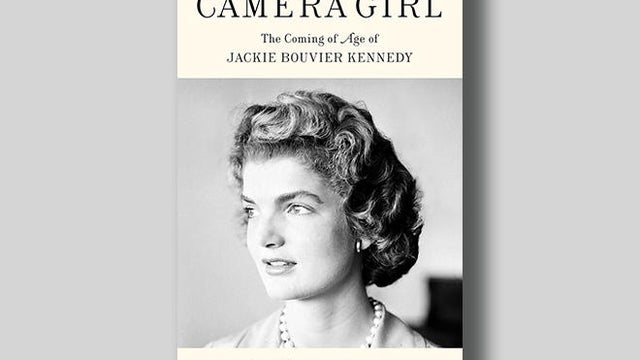Book excerpt: "Camera Girl: The Coming of Age of Jackie Bouvier Kennedy"

We may receive an affiliate commission from anything you buy from this article.
In "Camera Girl: The Coming of Age of Jackie Bouvier Kennedy" (Gallery Books, an imprint of Simon & Schuster, a division of CBS' parent company, Paramount Global), Carl Sferrazza Anthony tells of the socialite's adventures in Europe; her career as a Washington photojournalist; and her romance and marriage to a future president.
Read an excerpt below; and don't miss Tracy Smith's interview with Carl Sferrazza Anthony on "CBS News Sunday Morning" July 9!
"Camera Girl: The Coming of Age of Jackie Bouvier Kennedy" by Carl Sferrazza Anthony
Prefer to listen? Audible has a 30-day free trial available right now.
With her Inquiring Camera Girl column, Jackie sought to do more than entertain. She wanted to inspire and educate, consistently offering readers a chance to better understand exasperating behavior ("Why do you think people put off Christmas shopping until the last minutes?" "Why do you think so many people crack corny jokes in elevators?" "Do people welcome constructive criticism?") and develop greater empathy ("What is the greatest need of people in the world today?" "What are people most living for?" "What do you first notice about people when you meet them? Do you find that you often have to change your first impressions?"). She even managed to pose a few existential questions ("What came first, the chicken or the egg?" "What is the best age?").
The effort to draw out the best in strangers by pausing and encouraging them to think for themselves and own their brief moment of public attention was a small gesture, but it nevertheless lifted the dignity and respected the individuality of otherwise overlooked citizens and, vicariously, engaged the minds of thousands of similar readers. While some columns might have been intended to encourage erudite pursuits ("If you were put in solitary confinement and could only take one book, which would it be?"), she never avoided esoteric questions on the presumption that a cleaning lady or clerk was uninterested in the topics ("Do you think modern art mirrors our times as much as Renaissance art did for that time?") The way she composed the question let even those unfamiliar with an author or historic period offer a valid opinion. She did not talk down to the largely working-class people she interviewed—she listened to them.
Jackie recalled, "You could make the column about anything you wanted to. So, I'd find a bunch of rough, salty characters and ask them about a prizefighter just so I could capture the way they talked." The process called on her best editing skills. Intent on preserving the variety of cadence, dialect, and language she heard, she printed responses that often read like script dialogue, with colorful euphemisms, dialect, or aphorisms. In fifty or so words, she sought to encapsulate her respondents' personalities; visually aided by a snapshot, each answer essentially presents a distinct character.
Jackie later reflected that children were the best interview subjects because they "gave better answers than anyone," but she "most enjoyed" the interviews involving dance performances, because they let her spend "so much of the day with dancers at rehearsal." (Several times she interviewed Ballets Russes dancers who let her sit in on rehearsals. "What do you think about while dancing?" she asked them.)
Jackie's column ideas were never censored, although Waldrop threatened to fire her when she asked pedestrians what local newspaper they liked best and printed responses that chose the competition.
Excerpted from "Camera Girl" by Carl Sferrazza Anthony. Copyright © 2023 by Carl Sferrazza Anthony. Reprinted by permission of Gallery Books, a division of Simon & Schuster, Inc.
Get the book here:
"Camera Girl: The Coming of Age of Jackie Bouvier Kennedy" by Carl Sferrazza Anthony
Buy locally from Bookshop.org
For more info:
source: https://www.cbsnews.com/news/book-excerpt-camera-girl-the-coming-of-age-of-jackie-bouvier-kennedy/